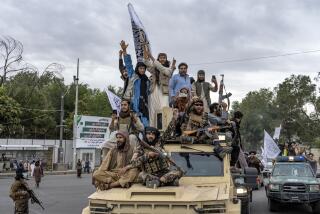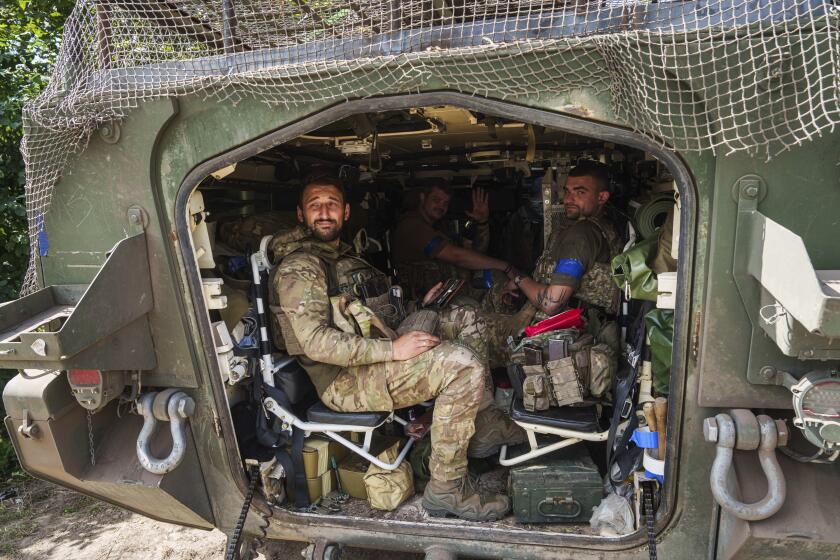Hillary Clinton stays vague about Afghanistan corruption
KABUL, Afghanistan — Not so long ago, if a senior U.S. official appearing in a high-profile setting were asked about corruption in Afghanistan, the response might have been a stern reminder that the government of President Hamid Karzai needed to do much more, and quickly, to fight graft and cronyism.
On Saturday, when Secretary of State Hillary Rodham Clinton fielded just such a query as she stood next to Karzai in the tranquil, leafy compound of his presidential palace in Kabul, her reply was far more equivocal. Many countries, she pointed out, find it a “major challenge” to meet standards of accountability and transparency.
The exchange came during an unannounced stopover by the secretary of State en route to a major donors conference Sunday in Tokyo, which Karzai is also attending. At that gathering, the international community will promise to buoy Afghanistan economically for years to come, an affirmation, in effect, that more than 10 years of warfare here has not been in vain.
But even if Clinton’s words were encouraging, many in the international community fear that much of the billions spent on the country is going down the drain.
Afghanistan’slatest requests for about $4 billion in annual aid underscore what a grave and seemingly intractable problem corruption has proved over the last decade, as the United States and its allies have sought to spur development and bolster effective governance while simultaneously waging war against the Taliban.
Despite heavy pressure from the American administration in past years, the Karzai government has yet to convict any high official in connection with even the most massive and brazen instances of fraud.
In the face of that, the pledges of support in Tokyo carry an implicit warning that given continued venality on the part ofAfghanistan’spower elite, the financial tap might finally begin to run dry.
During her stopover, Clinton delivered a boost from the Obama administration: the formal designation of Afghanistan as a “major non-NATO ally.” That label, mainly reserved for vastly more developed nations such as Israel, Australia and South Korea, will give the Kabul government preferential status for obtaining excess military equipment and other defense assistance after NATO ends its combat role in 2014.
“We see this as a powerful commitment to Afghanistan’s future,” Clinton told reporters in the palace garden, adding that the United States is “not even imagining abandoning Afghanistan.”
The Tokyo aid will not come without strings attached: As part of the package, Afghanistan is being asked to demonstrate commitments to clean governance, respect for human rights and tight tracking of development funds. But Clinton also spoke of the need for “mutual accountability,” a seeming nod to Karzai’s longtime contention that sloppy Western oversight and rapacious contractors are to blame for much of the waste of aid money.
Before the conference, however, some groups called for stricter controls.
“Because of the widespread corruption in all levels of government, the government has not succeeded to use the huge support of [the] international community effectively and improve the livelihoods of Afghan people,” the Afghan Anti-Corruption Network, a volunteer nonprofit group, said in an open letter to conference participants.
At the news conference with Karzai, Clinton also expressed continuing support for efforts to bring the Taliban to the bargaining table, although the earlier momentum of that push has all but halted in recent months. In what was telegraphed as a bid to revive the process of “reconciliation,” Afghanistan, Pakistan and the United States planned a ministerial-level meeting in Tokyo, she said.
Pakistan, which has been on the outs with the United States for most of this year before recently agreeing to allow the resumption of North Atlantic Treaty Organization shipments through its territory, is considered a crucial partner in any move to engage the Taliban.
More to Read
Sign up for Essential California
The most important California stories and recommendations in your inbox every morning.
You may occasionally receive promotional content from the Los Angeles Times.










